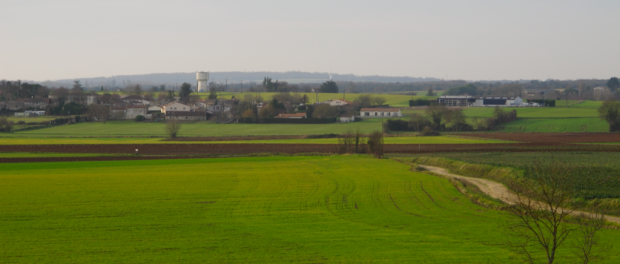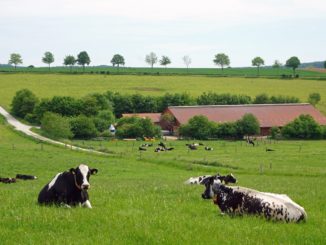Aurélie Trouvé’s book Le Business Est Dans Le Pré (Business Is In The Meadow, subtitled How Agribusiness Is Drifting Into Crisis) provided one of 2015’s most compelling reads. In just over 200 pages, agronomist and former co-president of Attac France, Aurélie Trouvé makes a technically-reasoned and tidily-argued case for radical changes to food production and agricultural policy.

Her arguments deserve a wider hearing and are worth reading for the insight that comes with a critical French view of the CAP’s political undercurrents. Trouvé challenges orthodox views with aplomb and suggests practical solutions that highlight what could be achieved with the right kind of political will and a genuine commitment to change.
For instance, a CAP that supports rural jobs would make a real difference to the rural economy [page 197]. Instead of making basic payments on the basis of hectares, which reinforces the inequalities that favour profit-hungry corporates, Trouvé advocates subsidising the people who unlock the land’s productive potential.
To be sure, there are vested interests that would fight such a plan tooth and nail. The corporate machine, with its covetous agenda, has been steadily extracting millions of Euros in speculative profits for years, wreaking untold damage on the European landscape in the process.
If the political will to make such a fundamental structural change were to prevail at a European level, it would bring stability back to the rural economy. It would go a long way to restoring the declining outlook for thousands of struggling peasant farmers who have been marginalised through no fault of their own by increasingly volatile and unsustainable commodity markets.
As well as discussing food and farming policies, Trouvé recognises the destabilising role played by the money markets. She discusses at length the changes which have been brought about by discarding market regulation that even John Maynard Keynes considered necessary as long ago as 1936.
Attac France has always supported what is now referred to as the Tobin tax on money market transactions, named after the Nobel prize-winning economist James Tobin. In the 1970s, Tobin advocated a revival of Keynes’ idea of skimming off a very modest percentage from traders in the money markets. Applying a rate of 0.05% to transactions in the international money markets worth six thousand billion US dollars a day, Trouvé calculates [page 202] that today, such a tax would generate between five hundred and a thousand billion dollars a year.
While agricultural markets have suffered disproportionately from the casino mentality of international markets, it is also clear that many of the lessons from the 2008 financial market meltdown have yet to be learnt. Some economists may be advocating special treatment for agriculture, but none go so far as to call for a return to public sector regulation of markets, let alone challenge the underlying assumptions that labour and the natural world exist solely as economic inputs for the unfettered growth of capital.
The challenge to this lopsided view of the world is coming from a growing movement within civil society: “Agriculture used to be the business of farmers and the Ministry of Agriculture,” Trouvé writes [page 209]. “It has become the business of ordinary citizens.” As with agriculture, Trouvé sees diversity within the raised voices of civil society as a strength not a weakness: what matters is that the political process listens to what they say.
Aurélie Trouvé’s book Le Business Est Dans Le Pré is published in French by Fayard, ISBN 978-2-213-67887-0.





